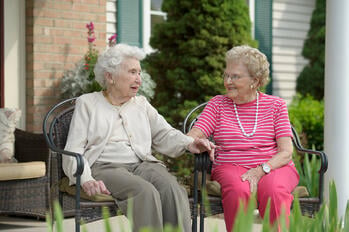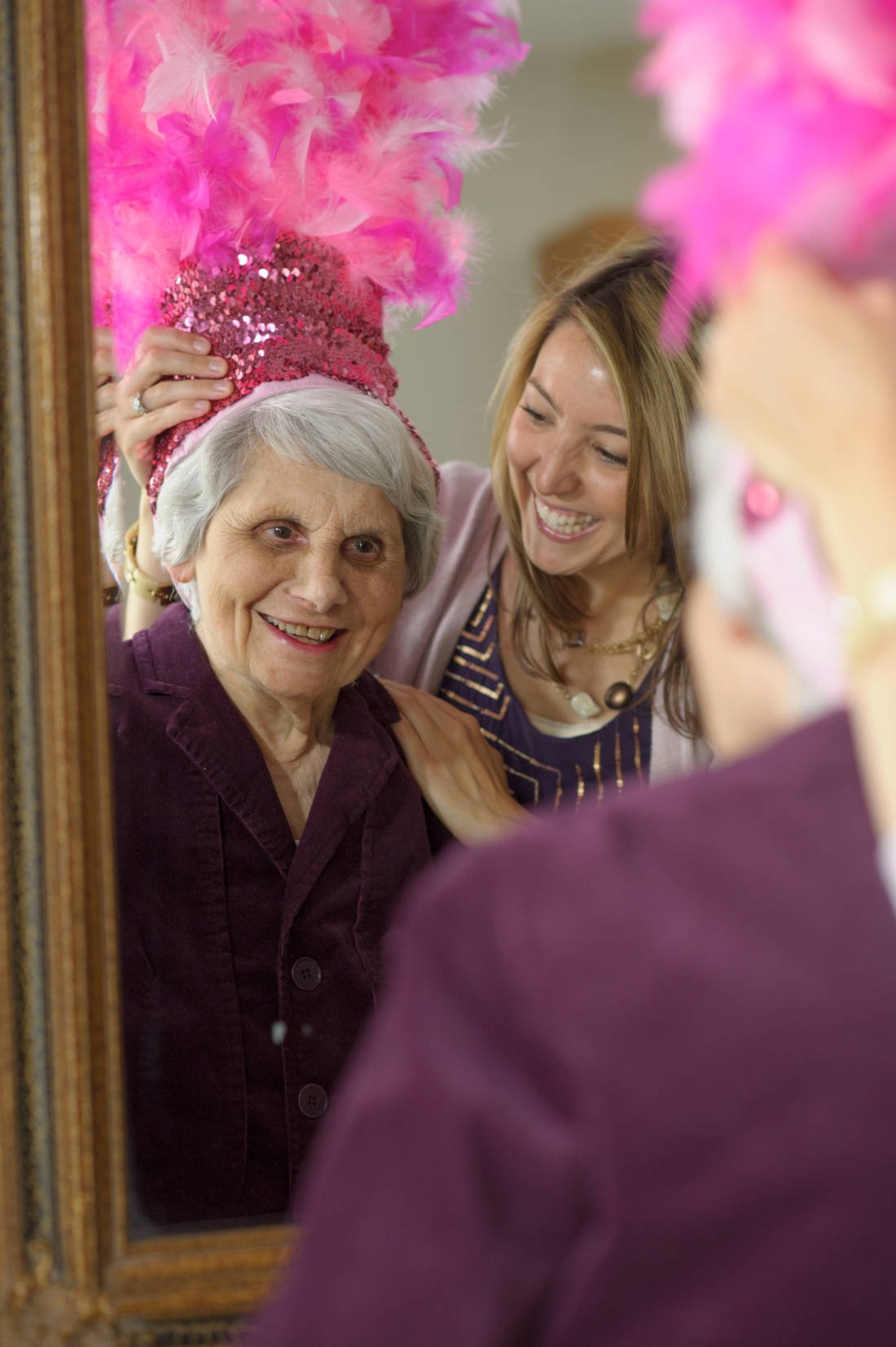Senior Isolation: What You Need to Know
assisted living | caregiver information | Aging & Caregiving
 We all understand what it feels like to be lonely. For most of us these feelings are only temporary; however, loneliness and social isolation can become a state of being for many seniors.
We all understand what it feels like to be lonely. For most of us these feelings are only temporary; however, loneliness and social isolation can become a state of being for many seniors.
Unfortunately, this is linked to a number of serious physical and mental health conditions. Here are some ways to help identify and prevent isolation in your aging loved one.
The Impact of Isolation
As many as 16 percent of people over the age of 65 experience loneliness, and this percentage is only expected to increase due to factors such as our aging population and the mobility of families.
Acute loneliness and isolation can have a long-reaching impact on the quality of life of seniors. But the effects aren't limited to mental health: loneliness has also been associated with physical conditions, including poor blood pressure and higher rates of mortality -- up to triple the national average, in fact.
What are the Risk Factors?
Seniors who live alone are particularly vulnerable to isolation. Other psychological, physical and social risk factors include lack of mobility; sensory impairment; psychological or cognitive conditions; a small social circle; and a shortage of social support.
Loneliness and isolation can also be triggered by major life transitions, such as the loss of a spouse or family member, close friend, or social network, or changes in physical or mental health. If your aging loved one has experienced a recent life change, altered sleeping or eating habits, a lack of interest in appearance, or antisocial behavior, these may be signs of isolation or depression.
What Can You Do?
Many seniors become isolated due to a lack of transportation. If your aging loved one has recently stopped driving, make sure he/she has plenty of opportunities for getting out and about. Look into public transportation or shuttle services for the elderly. If you don't live nearby, ask a local family member or friend to help with transportation.
Lack of socialization is another factor that leads to isolation. Make sure to check in frequently. While in-person visits are best, phone calls, email and even snail mail can help your loved one feel connected. If necessary, ask a neighbor to regularly check in.
Many local senior centers or community centers, as well as senior living communities organize social events. Check in to find out about everything from group outings, health and wellness seminars, scheduled activities and entertainment, free lectures, and more! Look for engaging ways for seniors to spend valuable time with others and perhaps encourage your loved one to consider becoming a member of a local senior center.
Loss of self-esteem is also common among the 65 and older set. To help your loved one maintain a sense of purpose, arrange for opportunities to participate in meaningful activities. Volunteering offers the chance to make a difference, as does membership in a group or club. While these interactions may not seem significant to you, they offer a critical lifeline to seniors vulnerable to isolation.
Consider a Senior Living Community!
One of the best ways to help older adults combat social isolation and connect with others is through community living. Making a move from living alone at home to living in a vibrant senior living community can provide countless opportunities for social interaction, activities and engagement, and building relationships with peers and with those of other generations.
Not sure if mom or dad would be willing to give the lifestyle a try? Take a tour at a few local communities and see what you think! Talk to other residents and ask why they chose to make a move to the community themselves. Inquire about whether or not the community offers any kind of trial stay which would allow your loved one to get a real idea of what life is like and how it can be beneficial.
Ultimately, older adults desire and deserve to be valued, not dismissed. By understanding the importance of identifying isolation and by countering loneliness with plenty of opportunities for social interaction, you can help your loved one enjoy a critical sense of connection and fulfillment.
Key Takeaways
- An abundance of research indicates that seniors are more prone to loneliness and social isolation.
- Some seniors are at an increased risk, including those who live alone, lack transportation, have a small social network, and/or have chronic health issues.
- Help alleviate feelings of loneliness by providing plenty of opportunities for socialization.
- Consider a senior living community as a beneficial option to combat social isolation and loneliness.
- Everyone needs to feel like they have a contribution to make: frequently remind your aging loved one how important he/she is to you.
About Marissa Salvesen
My journey into the world of senior living began when I started working for United Methodist Homes in 2010. Starting as an Activities Director at one of our-winning assisted and independent living communities and then transitioning to Marketing and Promotions Manager for UMH, I now work as the Manager of Mission Development, fostering the Mission and Values of our organization. I love sharing stories about the many ways we build meaningful relationships and enrich the lives of those we serve, and am proud to be part of building UMH’s 140-year legacy of caring. Wondering what makes our communities such special places to live and work? Connect with me and find out!

Our Blog is a 2016 Platinum Generations Award Winner! The Generations Award is an annual international competition for excellence in senior marketing recognizing professionals who have communicated to the 50+ Mature Markets.



